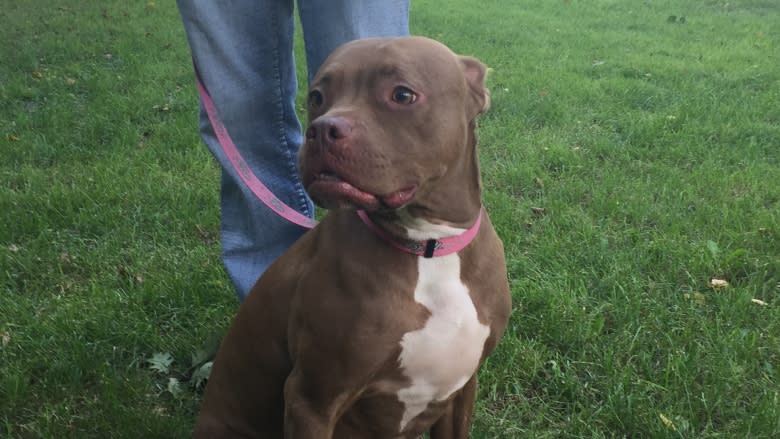New animal control bylaw will reduce bites, make Montrealers safer, city says
The City of Montreal has adopted its new animal control bylaw and it puts the onus on pet owners to be more responsible, the mayor said.
"An animal owner is responsible for their dog, but above all else they are responsible for the entire population. And that's the important message: making sure that animal owners fully understand what a big responsibility it is to have an animal in cities," said Montreal Mayor Valérie Plante.
The bylaw was adopted Tuesday afternoon with a vote of 49 for, and 11 against.
It does not mention banning specific breeds such as pit bulls, which was part of the controversial legislation enacted by former mayor Denis Coderre two years ago.
"Our bylaw goes beyond naming breeds of dogs, because in some instances there were cases where it could have been a Doberman, or a Husky. It can be different types of dogs," Plante said.
Some members of opposition party Ensemble Montreal voted against the bylaw, some saying it didn't go far enough.
One of them was Montreal North borough mayor Christine Black. The vote came just days after a dog, which was described in a police report as a pit bull, attacked and injured six people in her borough.
"When I read what happened in Montreal North, I can't help but ask the question, ask myself, 'Can we do more? Can we make sure that situations such as what happened recently don't happen again?'" Black said.
Plante said she's confident this new bylaw takes the right approach.
"The last bylaw that was adopted actually created a lot of division between the city members and also within all Montrealers, and today we came up with such a bigger consensus. So for me, it's a sign that we`re moving in a better direction," she said.
"Ultimately, we can point the finger at a specific breed of dog. That's easy. It's simpler. But at the end of the day, that will not protect the population."
What do dog owners need to know?
The new bylaw requires animal owners to report all bites to civil authorities, who in turn keep a record of attacks in a register.
The bylaw also encompasses attempted attacks, so that animals can be on a list identifying them as potentially dangerous.
Any owners who violate the provincial Animal Welfare and Safety Act will have their animal permit revoked for a period of time. That is also the case if a dog owner is caught for a third time failing to keep their animal on a leash.
Also, starting Jan. 1, 2020, dogs weighing more than 20 kilograms must be in a harness or halter. The use of choke collars — electric or spiked — will also be forbidden.
The mayor said citizens can also call 311 if they don't feel safe.
"If someone feels not secure around a dog, maybe the neighbour's dog, or a dog that comes in the park often … we will act. We will evaluate that dog and decide what category the dog fits," Plante said.
City councillor Craig Sauvé, the point man in charge of the animal safety file, said there will be more animal inspectors out on patrol, "more inspectors that are specialized in bite work. We will have the ability to act before there's an incident."
Pet stores, animal permits
The animal control bylaw also includes new stipulations for pet stores. As of July 1, 2019, they will only be allowed to sell cats, dogs and rabbits that come from shelters.
As for pet owners in the city, they can have a maximum of four cats and dogs per household. The limit drops to three if they own only dogs.
If someone has permission from a shelter to temporarily house animals, they can have a maximum of eight cats and dogs. But if they have only dogs, the limit remains at three.
Calèche ban coming
The new bylaw includes a ban on calèches, as initially proposed in June.
After Dec. 31, 2019, it will be prohibited in Montreal to transport passengers on horse-drawn carriages.
Plante said the city is giving calèche drivers a transition period of about a year-and a-half before the ban comes into place.
Those who violate the ban can be fined $500 to $1,000 for a first offence. The fine doubles for reoffenders.
With files from Radio-Canada



